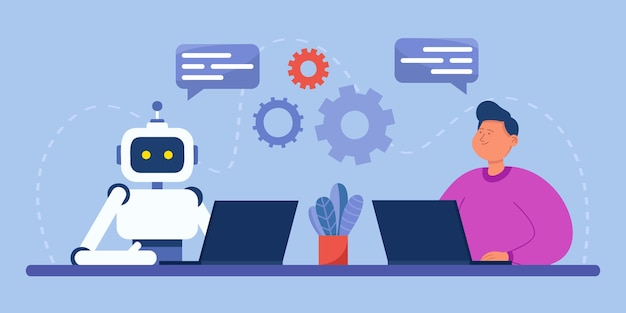One of the most frequently discussed topics regarding the modern technologies relates to the potential of AI to remove human positions in various spheres. This further gives rise to other questions regarding software testing in relation to AI. One of such questions include: “will software testing be taken over by AI?”. This question raised a lot of concerns and anxieties, in particular, among software testers. This blog, sheds light on the present-day status of AI in software testing, whether or not we are witnessing AI revolutionizing the testing space, and what is on the horizon for it.
Software Testing
But before getting into the effects of AI on software testing, it is crucial to know what it entails. Software application testing is a technical procedure aimed at evaluating the functionality of the software and determining whether the application is suitable to achieve a particular goal. Many test cases are run by the testers with the aim of identifying faults or defects that require to be corrected. It is thus a significant phase in the product development cycle that guarantees the end consumer a steady product that is functional.
Significance of AI in Software Testing
The interference of AI in software testing strategies and approaches is still evolving, however some visible changes can be seen already. AI is capable of performing routine processes, undertake data processing, and anticipate the issues that would occur using the past occurrences. These capabilities change the traditional model of how testing in the following ways:
- Automation of Repetitive Tasks: There are several trends in software testing due to which AI has had an impact. AI can be put to work in, for example, regression testing, which means repetitive testing of features that have previously been verified. It does not only fast-forward the execution of testing procedures but it also minimises blunders committed by humans. Algorithms can carry out the tests on demand and notify the user in cases of failure.
- Increased Test Coverage: Automated techniques are able to read code and generate test cases in a way that cannot be matched by any non-automated method. Besides that, AI also has the capability of self-updating as there are changes in the software, and it learns new tests upon developing changes in the software. This would improve the coverage as the AI test tools analyse many more scenarios than, perhaps, a human tester.
- Predictive Analysis: AI can easily predict any likely arising complications in line with the analyses of data sequences in terms of trends in prior runs of tests. This capability of prediction discovers where problems are most probably going to escalate to huge problems thus enlightening the developer on what to do.
- Smart Test Maintenance: Due to ongoing evolution, the task of tests’ maintenance could be monotonous. One burden of maintaining the test scripts is that once the software changes, the test scripts must necessarily change as well. However, this is where AI comes in and assist with the process as it will make the changes on its own.
Will Artificial Intelligence Replace Software Testers?
What AI will ultimately do to software testers is uncertain as it really depends on the nature of the work of the software testers and how and when AI is deployed. Of course, AI is transforming software testing but it is not going to eliminate human testing out of the equation. Here’s why:
- Complex Decision-Making: The thing is that AI perform well in areas which involve repetitive and predictable tasks while software testing involves decision making and problem solving. End-user, commonly known as human testers, rely on their instincts and patterns in identifying hard-to-find constraints that AI fails to locate. This aspect of testing cannot be replaced.
- Understanding Context: To express any software testing, of course, one would have to have some orientation in the context where it is to be applied. Human testers can know the manner in which the users act and develop other test cases based on such behaviour. AI may have some limitations to grasp some of the complex issues with regards to the users and their engagements.
- Ethical and Human Factors: Software development is not just about the specification and implementation, but analysis of the ethical implications as well as the human factors. In this way, human testers can provide very useful information regarding these ethical issues and the aspects of user experience that an AI would not be able to apprehend.
How Will AI Change Software Testing?
AI and Automation have become a prominent factor in the software testing field. However, AI does not seem to entirely replace human software testing. Humans working together with AI can brought visible changes to the traditional way of testing.
- Increased Efficiency: Yes, AI will perform a lot of the simple tasks that crop up in testing, and the actual human testers will be dealing with the more challenging and inventive definitions. All this is going to serve to the need of making the test to run in the smoother way and in addition to this it is going to reduce the instances of errors.
- Continuous Testing: AI tools will execute tests over and over again, correlate with CI/CD, and deliver immediate feedback that accelerates the programming cycle as well as enhances the quality of Software.
- More Accuracy: More comprehensive testing will occur from the function of AI as it categorizes big data to identify trends and patterns. It is worth underlining that such an increase in accuracy would be much more helpful in identifying the bugs and the problems that are out of sight.
- New Skill Requirements: Software testers should accept that a new age with AI is coming and one must learn new things. Getting to know about AI tools, their outputs and concentrating on the aspects that involve the notion of decision making will grow in importance.
Conclusion
AI is finding major leaps in software testing, it cannot replace the human resources involved in testing fully. The future of software testing thus will lie in how AI can be efficient in repetitive tasks and those unique insights and creativity that human testers bring on board. AI will make the testing process efficient and accurate; however, the human touch will still remain in a very substantial way for comprehensive and context-aware testing.
Software testing will improve in the future, and the key to this is the utilization of artificial intelligence’s potential when appropriate, but at the same time respecting human experience. Therefore, the future of software testing will incorporate the aspects of both human and artificial intelligence in delivering quality software solutions.

